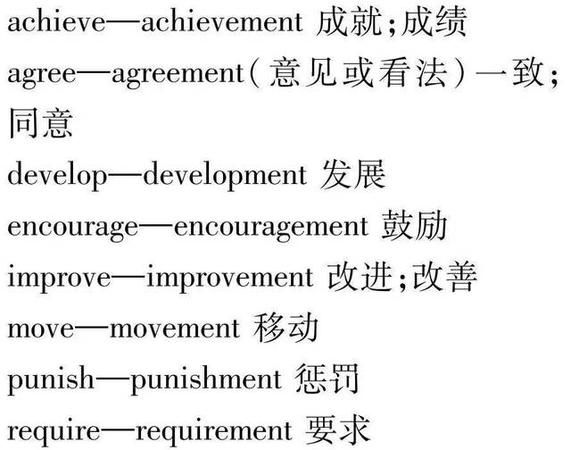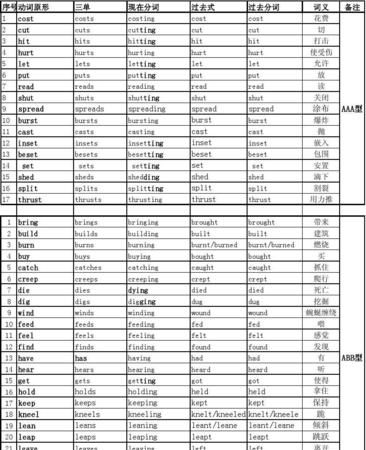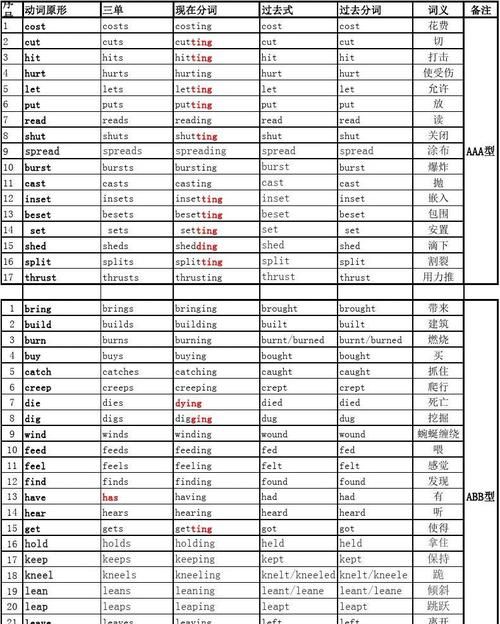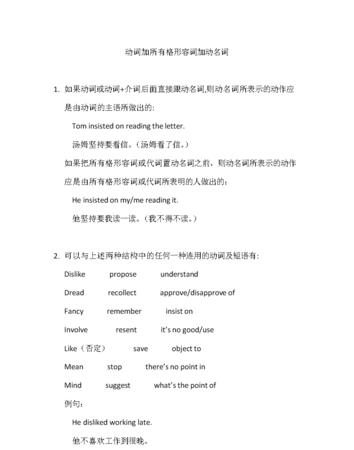本文目录
什么动词后面只能跟doing
enjoy,mind,finish,practice,keep

哪些动词后面跟动名词做宾语补足语
1)以下动词后,只能跟不定式作宾语.如:agree, ask, aim, arrange, choose, decide, demand, expect, fail , help, hope, lean, long, manage, offer, plan, prepare, pretend, promise, refuse, wish
2)以下动词后,只能接动名词作宾语,如:admit, appreciate, consider, delay, enjoy, finish, keep, imagine, mind, miss, practise, resist, risk, save, suggest, don't mind, give up, insist, on, put off
3) 部分动词后两者都可接,但意义差别较大,应根据句子语境选择使用。
动名词与不定式语义不同的有11 组:
1 stop to do stop doing
2 forget to do forget doing
3 remember to do remember doing
4 regret to do regret doing
5 cease to do cease doing
6 try to do try doing
7 go on to do go on doing
8 afraid to do afraid doing
9 interested to do interested doing
10 mean to do mean doing
11 begin/ start to do begin/ start doing

只能接动名词作宾语的动词有哪些?
admit 承认 appreciate 感激,赞赏 avoid 避免 complete 完成 consider 认为 delay 耽误 deny 否认 detest 讨厌 endure 忍受 enjoy 喜欢 escape 逃脱 prevent阻止 fancy 想象 finish 完成 imagine 想象 mind 介意 miss 想念 postpone 推迟 practise 训练 recall 回忆 resent 讨厌 resist 抵抗 resume 继续 isk 冒险 suggest 建议 face 面对 include 包括 stand 忍受 understand 理解 forgive 宽恕 keep 继续
b. 词组后接doing
admit to prefer…to be used to lead to devote oneself to object to stick to be busy look forward to to为介词)
no good, no use, It's worth… as well as can't help It's no use /good be tired of be fond of be capable of be afraid of
be proud of think of / about hold off put off keep on insist on count on / upon set about be successful in good at take up give up burst out prevent … from…

哪些动词后面只能接动名词做宾语
以下动词后,只能跟不定式作宾语 afford (付得起),agree(同意),aim(力求做到), appear(显得),arrange(安排),ask(要求),attempt (试图),care(想要),choose(决定),claim(声称),condescend(屈尊),consent(准许),decide(决定),demand(要求),determine(决心),endeavor(竭力),expect(期待),fail(未履行),help(帮助),hesitate(犹豫),hope(希望),learn(学会),manage(设法),neglect(疏忽),offer(主动提出),plan(计划),prepare(准备),pretend(假装),proceed(接着做),promise(答应),prove(证明),refuse(拒绝),resolve(解决),seem(觉得好像),swear(发誓),tend(往往会),threaten(预示),undertake(承诺),volunteer(自愿做),vow(发誓),want(想要),wish(希望) 举例: The driver failed to see the other car in time. 司机没能及时看见另一辆车。 I happen to know the answer to your question. 我碰巧知道你那道问题的答案。
当复合宾语中的宾语是不定式时,先用形式宾语it代替不定式,把不定
式置于补语之后,即:主语+动 词+it+补语+to do句式。如:
We think it quite important for us to learn a foreignlanguage well.
He feels it his duty to help the poor.
③介词but,except,besides+to do(do)
在这种句型中,如介词前有动词do,后面应接不带to的不定式;如无do,
则接to不定式,即带do不带to, 带to不带do。如:
The enemy soldiers had no choice but to give in.
On Sunday afternoon I had nothing to do but watch TV.
①以下动词后,只能接动名词作宾语,如:
admit,appreciate,consider,delay,enjoy,finish,keep,imag
ine,mind,miss,practise,resist,risk,save,suggest,don't mind,give
up,insist,on, put off等。如:
I suggest spending our summer vacation in a seaside town.
You must give up smoking, for it does too much harm toyour health.
②动名词作介词的宾语
I should go to attend the birthday celebration instead of staying at home.
What about inviting Li Jun to make a speech?
动名词前的介词有时可以省略,如:have difficulty(in)doing,have no
trouble(in)doing,lose no ti
me(in)doing,prevent/stop…(from)doing,there is no use(in)doing等。
部分动词后面,既可接动词不定式,也可接动名词作宾语,意义不变。如:
begin,continue,start,hat e,like,love,need,require,want等。
在need,require,want后接-ing形式,表示被动意义,也可接不定式,但
要用被动形式,如:Your handwr iting needs improving(tobe improved).
hate, love, like接不定式表示特定的未来事件,接动名词表示目前 正在进行的活动或一般的行为。
在下列情况下,一般要用不定式:
①hate, like, love前有would(should)时,如:I'd like to have a cup of coffee.
②当谓语动词begin,continue,start等是进行式时,如:The students are starting to work on the difficult maths problem.
begin, began to understand what was happening.
⒋ advise, allow, encourage, forbid, permit等动词后接动名词作宾语,或带不定式作宾语补足语。如:
Our teachers don't permit our swimming in the lake.
Our teachers don't permit us to swim in the lake.
⒌ 部分动词后接不定式或动名词时,意义差别较大,应根据句子语境选择使
用。
①forget, remember, regret后接不定式,表示现在或未来的动作,接动名 词表示动作已经发生。如:
Don't forget fo post the letter for me.
Have you forgotten meeting her in Beijing Airport?
Remember to close the windows before you leave.
I remember writing him a letter a year ago.
We regret to tell you that all of you are not invited toattend the meeting.
They regretted ordering these books from abroad.
②mean to do 打算做某事
doing 意味着……
I meant to catch up with the early bus.
This means wasting a lot of money.
③try to do 设法尽力做某事
doing 试着做某事
You should try to overcome your shortcomings.
Try working out the physics problem in another way.
④stop to do 停下一件事去做另一件事(不定式作目的状语)
doing 停止做某事
On the way to the airport,I stopped to buy a paper.
You'd better stop arguing and do as you are told.
⑤can't help doing 禁不住……
to do不能帮助干……
They couldn't help jumping up at the news.
Sorry I have lots of work to do.So I can't help to make up the room for you.
⑥go on to do 做不同的事或不同内容的事
doing 继续不停地做某事,指同一动作的继续
He went on to talk about world situation.他接着又谈了世界形势。
We'll go on fighting so long as there is oppression inthe world.
⑦leave off to do 离开某地去干什么(目的状语)
doing停下某事
It's time to leave off talking and to start acting.
They left off to go fishing.

以上就是关于后面只跟动名词的动词 ,什么动词后面只能跟doing的全部内容,以及后面只跟动名词的动词 的相关内容,希望能够帮到您。
